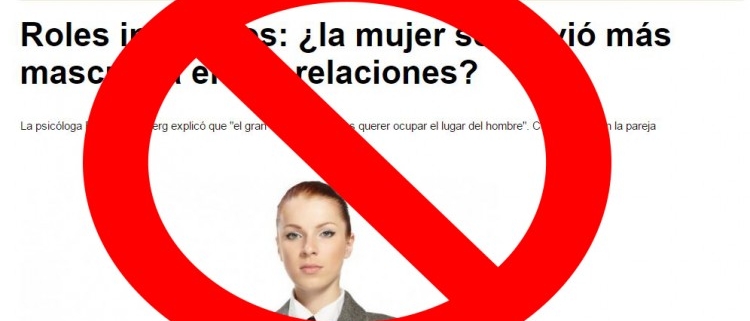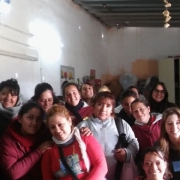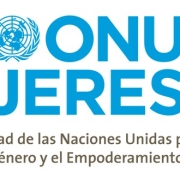Discrimination: the failures of virtual “denunciations” before the INADI
On the site Infobae, it was published with a note titled “Reversed roles: did the woman become more masculine in relationships?“, Which repeatedly incurs stereotypical and discriminatory comments and symbolic violence towards women. From this, a consultation was made with INADI, which did not have concrete results.
“Below, we offer a google translate version of the original article in Spanish. This translation may not be accurate but serves as a general presentation of the article. For more accurate information, please switch to the Spanish version of the website. In addition, feel free to directly contact in English the person mentioned at the bottom of this article with regards to this topic.”
The news in question is developed from an interview with a psychologist who, while highlighting the advances of women in the professional field, understands that these are spaces reserved for men, usurped by women, placing them in related tasks Home and care. According to the psychologist and writer Beatriz Goldberg, today’s woman is dislocating the man from her place. He has difficulty in finding the right role.’Women can and should have activities in all areas, But from the role of woman.If you ‘masculinize’, you lose your intuitive and intellectual capacity. ”
It is worrying to continue to think that the labor and professional fields, as well as the tasks of providing economic resources in the home, are exclusively male, and to the “masculinized” women, when they are part of these spaces or they appropriate those tasks.
Likewise, repeated references are made to the importance of not losing typically “feminine” characteristics, such as sensitivity or intuition. Likewise, denigrating comments are made, such as the reference to women as household appliances: “It is multiprocessor, it does everything, it is multiple”.
These types of opinions and comments reproduce sociocultural patterns of behavior that stereotype, discriminate and subordinate women, demanding that they be reserved for certain spaces and meet certain characteristics to be considered as such. In addition, being a person placed in a space of authority for their professional qualifications, it is understood that the psychologist is a referent on gender issues and therefore, their sayings have more influence on the reader.
The acts described have their roots in social conditions of inequality suffered by women, rooted in society, with a strong symbolic content that reinforces such conditions.
Phrases enunciated by the interviewee as “the role of women in society is to be a woman” promotes the idea that men and women have roles determined only by being one or the other. In addition, the lack of reflection on the struggles of women’s movements, which after decades of activism achieved progressive equality before the law between men and women, made visible the barriers they have to accessing jobs or participation in professional life.
The complaint process
From the facts, it was decided to make a presentation in front of INADI, since this is a fact of discrimination against women, occurred in a digital medium. We use the process of consultation for discrimination, the most accessible on the body’s website. From telephone communications, we followed up on our claim, which was derived to the Platform by a free Internet of discrimination. Subsequently, it was presented to the medium producing the discriminatory content, as a concern but without any obligation, so the note was not modified or withdrawn from the website. Against this, INADI took no action in the matter and the case remained in mere consultation. The virtual mechanism, then, proves not to be effective, since the claims do not acquire character of denunciation.
In order for INADI to make its effective pronouncement, the complaints must be presented as complaints, which must be made personally in front of a delegation of INADI. It should be recalled that the Argentine State is obliged to carry out measures against discrimination against women, not only by local legislation, but also by the human rights treaties ratified by our country and constitutional hierarchy, such as the Convention On Elimination of all Forms of Discrimination against Women and the Convention of Belem do Pará.
More information
Contact
Carolina Tamagnini – carotamagnini@fundeps.org








